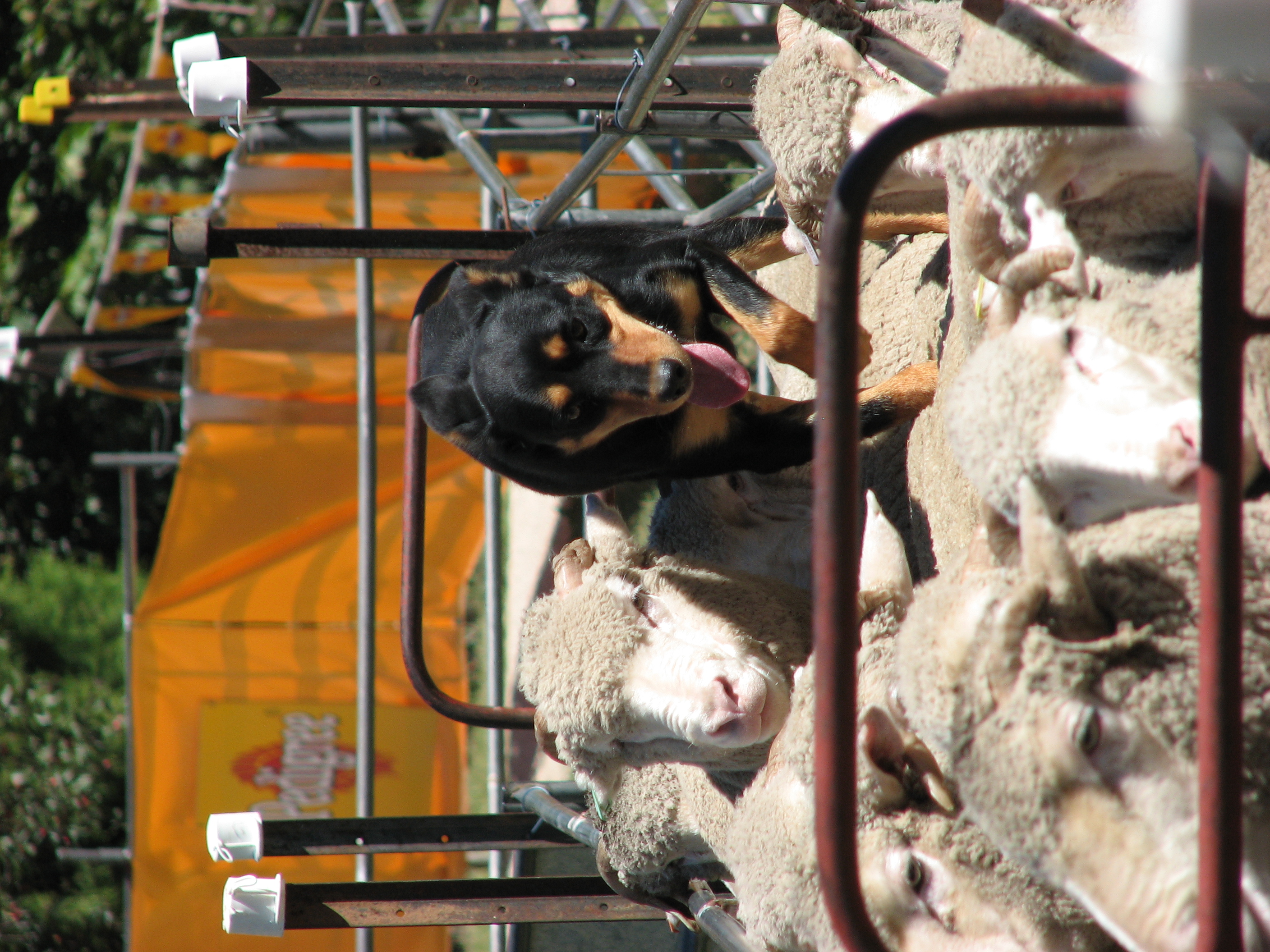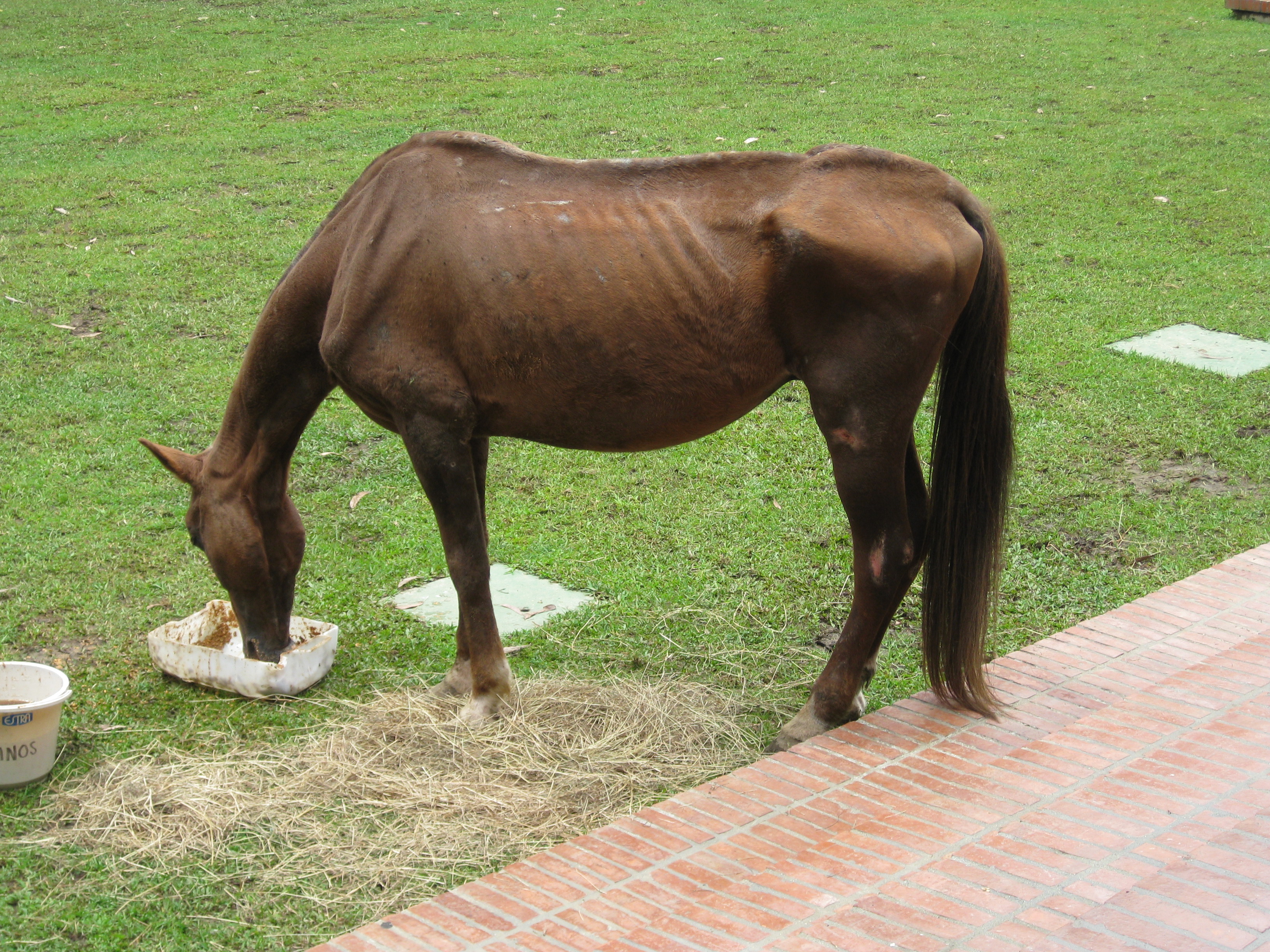|
Anthrozoology
Anthrozoology, also known as human–nonhuman-animal studies (HAS), is the subset of ethnobiology that deals with interactions between humans and other animals. It is an interdisciplinary field that overlaps with other disciplines including anthropology, ethnology, medicine, psychology, social work, veterinary medicine, and zoology. A major focus of anthrozoologic research is the quantifying of the positive effects of human–animal relationships on either party and the study of their interactions. It includes scholars from fields such as anthropology, sociology, biology, history and philosophy. Anthrozoology scholars, such as Pauleen Bennett recognize the lack of scholarly attention given to non-human animals in the past, and to the relationships between human and non-human animals, especially in the light of the magnitude of animal representations, symbols, stories and their actual physical presence in human societies. Rather than a unified approach, the field currently con ... [...More Info...] [...Related Items...] OR: [Wikipedia] [Google] [Baidu] |
Pauleen Bennett
Pauleen Charmayne Bennett (born 13 October 1963) is an Australian scientist researching anthrozoology at La Trobe University in Victoria, Australia. Bennett's research in the field of human-animal interactions has informed government policy and covered areas of: human attitudes, health and behaviour; ethics of animals in society; animal behaviour, physiology and welfare. Her research interest lies in understanding the diverse psychological connections between humans and animals, particularly companion animals, positive psychology, and in the use of animals in human health therapies. In 2002, Bennett founded the Anthrozoology Research Group, an interdisciplinary team of postgraduate and undergraduate researchers with over one hundred peer-reviewed journal and conference publications. She is chair of the Australian Anthrozoology Research Foundation, a non-profit foundation set up to raise research funding for students investigating the potential benefits for human health of engag ... [...More Info...] [...Related Items...] OR: [Wikipedia] [Google] [Baidu] |
Anthropology
Anthropology is the scientific study of humanity, concerned with human behavior, human biology, cultures, societies, and linguistics, in both the present and past, including past human species. Social anthropology studies patterns of behavior, while cultural anthropology studies cultural meaning, including norms and values. A portmanteau term sociocultural anthropology is commonly used today. Linguistic anthropology studies how language influences social life. Biological or physical anthropology studies the biological development of humans. Archaeological anthropology, often termed as 'anthropology of the past', studies human activity through investigation of physical evidence. It is considered a branch of anthropology in North America and Asia, while in Europe archaeology is viewed as a discipline in its own right or grouped under other related disciplines, such as history and palaeontology. Etymology The abstract noun '' anthropology'' is first attested in refe ... [...More Info...] [...Related Items...] OR: [Wikipedia] [Google] [Baidu] |
Ethology
Ethology is the scientific study of animal behaviour, usually with a focus on behaviour under natural conditions, and viewing behaviour as an evolutionarily adaptive trait. Behaviourism as a term also describes the scientific and objective study of animal behaviour, usually referring to measured responses to stimuli or to trained behavioural responses in a laboratory context, without a particular emphasis on evolutionary adaptivity. Throughout history, different naturalists have studied aspects of animal behaviour. Ethology has its scientific roots in the work of Charles Darwin and of American and German ornithologists of the late 19th and early 20th century, including Charles O. Whitman, Oskar Heinroth, and Wallace Craig. The modern discipline of ethology is generally considered to have begun during the 1930s with the work of Dutch biologist Nikolaas Tinbergen and Austrian biologists Konrad Lorenz and Karl von Frisch, the three recipients of the 1973 Nobel Prize in ... [...More Info...] [...Related Items...] OR: [Wikipedia] [Google] [Baidu] |
Domestication
Domestication is a sustained multi-generational relationship in which humans assume a significant degree of control over the reproduction and care of another group of organisms to secure a more predictable supply of resources from that group. A broader biological definition is that it is a coevolutionary process that arises from a mutualism, in which one species (the domesticator) constructs an environment where it actively manages both the survival and reproduction of another species (the domesticate) in order to provide the former with resources and/or services. The domestication of plants and animals by humans was a major cultural innovation ranked in importance with the conquest of fire, the manufacturing of tools, and the development of verbal language. Charles Darwin recognized the small number of traits that made domestic species different from their wild ancestors. He was also the first to recognize the difference between conscious selective breeding (i.e. artificial se ... [...More Info...] [...Related Items...] OR: [Wikipedia] [Google] [Baidu] |
Sui Generis
''Sui generis'' ( , ) is a Latin phrase that means "of its/their own kind", "in a class by itself", therefore "unique". A number of disciplines use the term to refer to unique entities. These include: * Biology, for species that do not fit into a genus that includes other species * Creative arts, for artistic works that go beyond conventional genre boundaries * Law, when a special and unique interpretation of a case or authority is necessary ** Intellectual property rights, for types of works not falling under general copyright law but protected through separate statutes * Philosophy, to indicate an idea, an entity, or a reality that cannot be reduced to a lower concept or included in a higher concept Biology In the taxonomical structure "genus → species", a species is described as ''sui generis'' if its genus was created to classify it (i.e. its uniqueness at the time of classification merited the creation of a new genus, the sole member of which was initially the ''sui g ... [...More Info...] [...Related Items...] OR: [Wikipedia] [Google] [Baidu] |
ABMAP
ABMAP, also known as the Animal Bone Metrical Archive Project, consists of a collection of metric data on the main domestic animals recorded at the University of Southampton, together with the data from some other sources, in particular the Museum of London Archaeology Service (MoLAS). Whilst the data is primarily from England, it is applicable to a wider geographical area. Stored in a neutral archival format, it is freely available for teaching, learning and research. History of the Project In the 1990s English Heritage funded a project at the University of Southampton to collect and synthesize metrical data recorded over the past twenty years. The main aim was to assemble the data and ensure that it was kept in a format in which it would be maintained and made accessible. The Database The project aimed to collect measurements of the main domestic species found on archaeological sites in England. The database included approximately 25,000 bones, predominantly of cattle and ... [...More Info...] [...Related Items...] OR: [Wikipedia] [Google] [Baidu] |
National Institutes Of Health
The National Institutes of Health, commonly referred to as NIH (with each letter pronounced individually), is the primary agency of the United States government responsible for biomedical and public health research. It was founded in the late 1880s and is now part of the United States Department of Health and Human Services. The majority of NIH facilities are located in Bethesda, Maryland, and other nearby suburbs of the Washington metropolitan area, with other primary facilities in the Research Triangle Park in North Carolina and smaller satellite facilities located around the United States. The NIH conducts its own scientific research through the NIH Intramural Research Program (IRP) and provides major biomedical research funding to non-NIH research facilities through its Extramural Research Program. , the IRP had 1,200 principal investigators and more than 4,000 postdoctoral fellows in basic, translational, and clinical research, being the largest biomedical research ins ... [...More Info...] [...Related Items...] OR: [Wikipedia] [Google] [Baidu] |
Waltham Centre For Pet Nutrition
The Waltham Petcare Science Institute is the science hub for Mars Petcare, owned by Mars, Incorporated located at Waltham on the Wolds, Leicestershire, United Kingdom. Waltham conducts scientific research into pet care and animal nutrition (for dogs, cats, fish and horses). History The pet food subsidiary of Mars, Incorporated (Mars Petcare) began research into pet nutrition in the early 1960s, formally founding a Nutrition Research Unit in 1965. Originally the institute was housed at a nearby location but was moved to an old stud farm at Waltham-on-the-Wolds in 1973. Since 2001, a non-charitable organisation called the Waltham Foundation has funded a number of humane scientific research projects dedicated to furthering the health and nutrition of companion animals. An August 2019 documentary on Channel 4 made by Whitworth Media featured the site. Research *In July 2005, in collaboration with the Monell Chemical Senses Center in Pennsylvania, Waltham discovered that cats ca ... [...More Info...] [...Related Items...] OR: [Wikipedia] [Google] [Baidu] |
Personhood
Personhood or personality is the status of being a person. Defining personhood is a controversial topic in philosophy and law and is closely tied with legal and political concepts of citizenship, equality, and liberty. According to law, only a legal person (either a natural or a juridical person) has rights, protections, privileges, responsibilities, and legal liability. Personhood continues to be a topic of international debate and has been questioned critically during the abolition of human and nonhuman slavery, in debates about abortion and in fetal rights and/or reproductive rights, in animal rights activism, in theology and ontology, in ethical theory, and in debates about corporate personhood and the beginning of human personhood. Processes through which personhood is recognized socially and legally vary cross-culturally, demonstrating that notions of personhood are not universal. Anthropologist Beth Conklin has shown how personhood is tied to social relations among th ... [...More Info...] [...Related Items...] OR: [Wikipedia] [Google] [Baidu] |
Animal Abuse
Cruelty to animals, also called animal abuse, animal neglect or animal cruelty, is the infliction by omission (neglect) or by commission by humans of suffering or harm upon non-human animals. More narrowly, it can be the causing of harm or suffering for specific achievements, such as killing animals for entertainment; cruelty to animals sometimes encompasses inflicting harm or suffering as an end in itself, referred to as zoosadism. Divergent approaches to laws concerning animal cruelty occur in different jurisdictions throughout the world. For example, some laws govern methods of killing animals for food, clothing, or other products, and other laws concern the keeping of animals for entertainment, education, research, or pets. There are several conceptual approaches to the issue of cruelty to animals. Even though some practices, like animal fighting, are widely acknowledged as cruel, not all people and nations have the same definition of what constitutes animal cruelty. Man ... [...More Info...] [...Related Items...] OR: [Wikipedia] [Google] [Baidu] |
Cruelty To Animals
Cruelty to animals, also called animal abuse, animal neglect or animal cruelty, is the infliction by omission (neglect) or by commission by humans of suffering or harm upon non-human animals. More narrowly, it can be the causing of harm or suffering for specific achievements, such as killing animals for entertainment; cruelty to animals sometimes encompasses inflicting harm or suffering as an end in itself, referred to as zoosadism. Divergent approaches to laws concerning animal cruelty occur in different jurisdictions throughout the world. For example, some laws govern methods of killing animals for food, clothing, or other products, and other laws concern the keeping of animals for entertainment, education, research, or pets. There are several conceptual approaches to the issue of cruelty to animals. Even though some practices, like animal fighting, are widely acknowledged as cruel, not all people and nations have the same definition of what constitutes animal cruelty. Man ... [...More Info...] [...Related Items...] OR: [Wikipedia] [Google] [Baidu] |
Speciesism
Speciesism () is a term used in philosophy regarding the treatment of individuals of different species. The term has several different definitions within the relevant literature. A common element of most definitions is that speciesism involves treating members of one species as morally more important than members of other species in the context of their similar interests. Some sources specifically define speciesism as discrimination or unjustified treatment based on an individual's species membership,Horta, O., 2010. ''What is speciesism?''. Journal of agricultural and environmental ethics, 23(3), pp.243-266, p.247 " eciesism is the unjustified disadvantageous consideration or treatment of those who are not classified as belonging to one or more particular species" while other sources define it as differential treatment without regard to whether the treatment is justified or not. Richard Ryder, who coined the term, defined it as "a prejudice or attitude of bias in favour of the ... [...More Info...] [...Related Items...] OR: [Wikipedia] [Google] [Baidu] |








